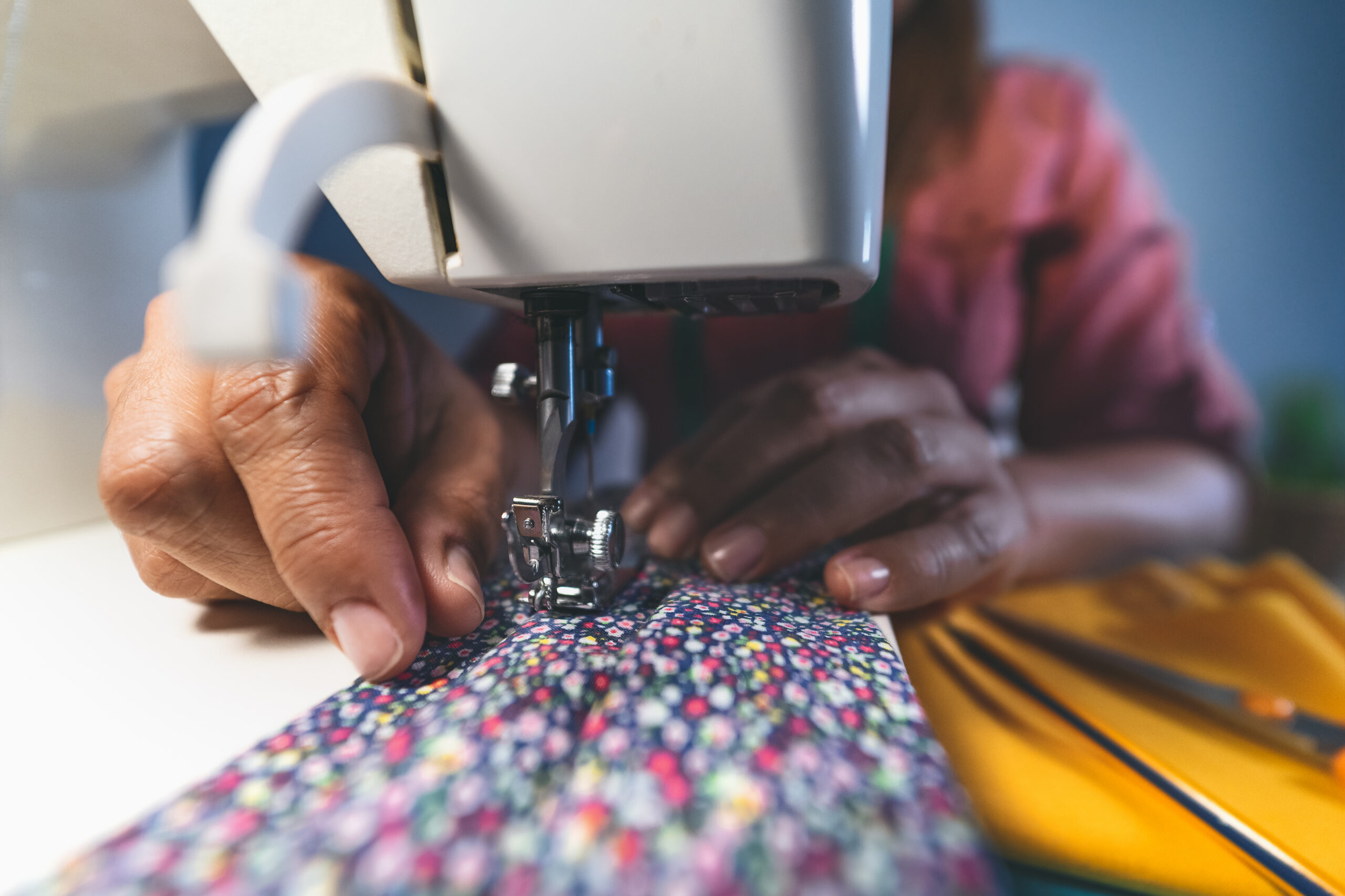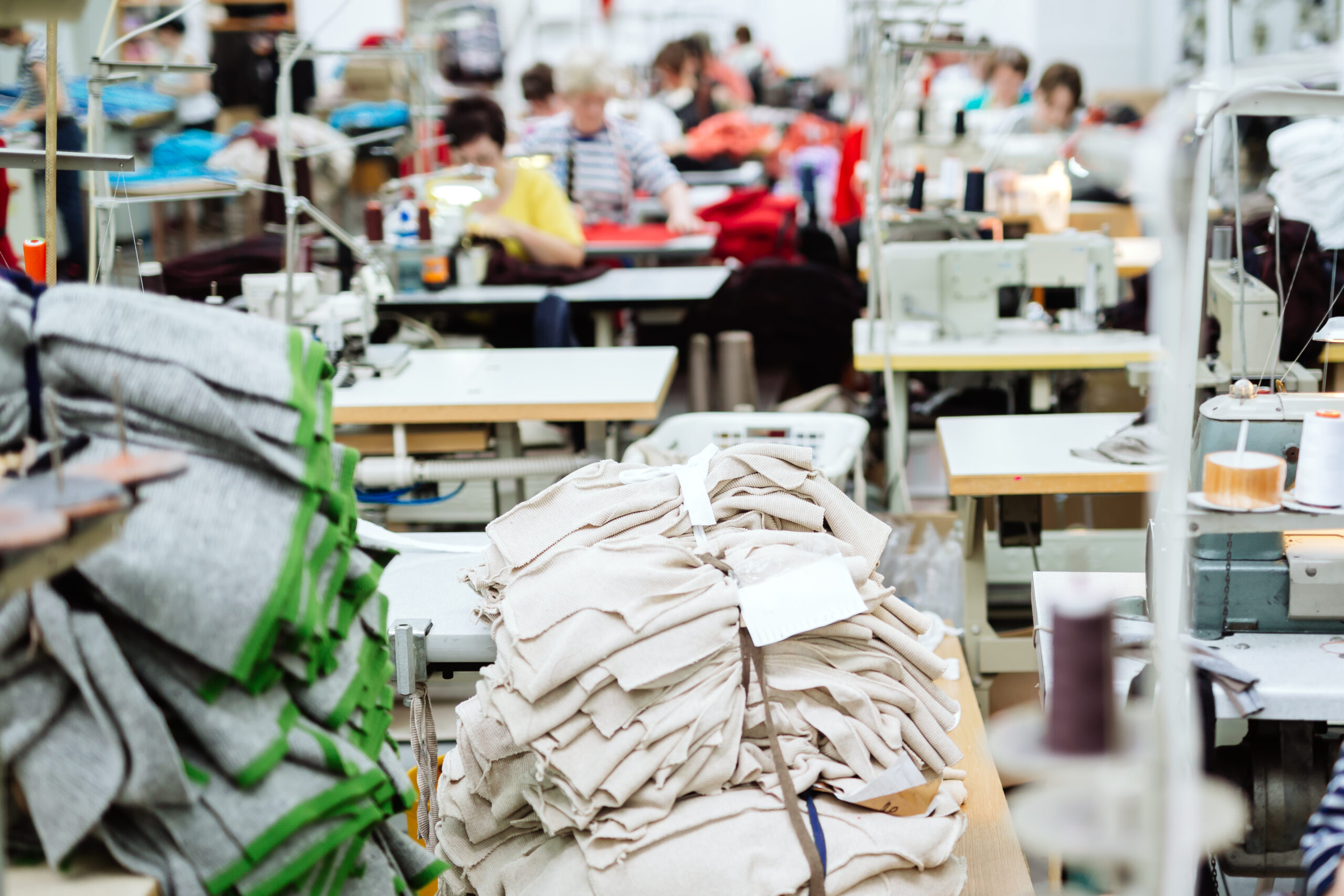Myanmar garment workers face long hours and low pay as global brands consider their roles amidst political instability.
BANGKOK (ANN/The Straits Times): Despite the ongoing political instability, production lines remain active in certain Yangon garment factories, posing a dilemma for international fashion brands: continue operations in Myanmar or consider an exit strategy?
In a factory dedicated to crafting trousers for Japanese customers, an employee named Myat (who preferred to withhold her full name for security purposes) shared her work schedule.
She toils from 7am to 6pm, six days a week. Interestingly, her overtime compensation is limited to just two hours daily, while any additional earnings are contingent on a commission tied to the completion of each garment piece.
“They have a target we need to hit each day. And even after we hit the target, they ask us to work more,” said the 21-year-old woman, who has been working in garment factories for the past four years.
“The supervisor said: ‘The factory cannot pay the overtime fee, but you must work overtime because we have a lot of orders’,” she added.

But inflation and the devaluation of the local currency since the Feb 2021 coup has meant that the MMK280,000 salary she makes every month is worth a lot less now.
In contrast to the pre-coup exchange rate of about MMK1,300 to the US dollar, the market value of the kyat dropped to as low as MMK3,900 kyat for USD1 in August.
Myanmar’s central bank uses a reference rate of MMK2,100 to the greenback.
“Before the coup, even though I earned MMK240,000, I could afford to save. Now, just to cover my expenses, I need to borrow money from friends,” Myat told ST.
She admits there are few other job options outside the garment industry, with the political and armed conflict keeping major foreign investment away.
Economic growth for the country in the year ending September is estimated by the World Bank to be just three per cent.
Myanmar’s garment sector employed about 700,000 people before the COVID-19 pandemic. According to the World Bank, Myanmar’s manufacturing exports – which included garments – fell by 11 per cent in the first five months of 2023.
Since the Feb 2021 coup, major brands like Marks & Spencer, Fast Retailing (owner of Uniqlo brand), and Ryohin Keikaku (owner of Japanese brand Muji) have either stopped sourcing from Myanmar or announced that they will stop sourcing from it.
In August, Swedish giant H&M announced that it would gradually exit the country.
Paradoxically, the devaluation of the kyat has made the country financially attractive as a place to manufacture garments.
But with trade union activity now viewed with suspicion by a junta determined to snuff out organised resistance, workers are increasingly wary of trying to negotiate for better wages.

In June, at least 10 workers and labour right organisers at Hosheng Myanmar Garment Company, which manufactures for brands like Zara, were arrested for trying to negotiate for higher wages.
Although they were charged with sedition and unlawful association, they were released on September 4.
Vicky Bowman, director of Myanmar Centre for Responsible Business, said: “No brand should be sourcing from any factory whose managers call in the military to coerce workers, but that’s not the majority of factories.”
Local workers interviewed by ST said they felt the pressure to tamper their requests for fairer wages.
Thwe, a workers representative in a Yangon factory making sweaters for British brands, told ST her colleagues were deterred from demanding that the factory formalise a pay raise in June after hearing the military had arrested some people at another factory.
Bowman noted: “We can be pretty sure that companies will be doing their best to maximise the value of the hard currency they are using to pay for workers’ wages. But they don’t pass on that benefit to their workers as wage increases.”
Jacob Andrew Clere, team leader of the European Union-funded SMART Factories Programme to improve labour and environmental standards, said: “It’s hard to see how exiting can be considered responsible, and it will rarely result in the problems that brands are bound to encounter being effectively remediated.
“It’s only by staying that they have leverage to get factories to address problems, whether it’s the discovery of a case of underage labour or of unpaid wages.”

Similarly, Bowman said whether global brands stay or leave is “fundamentally related to whether you can do due diligence on the working conditions in your factory, whether you can provide remedy when workers’ rights are being abused within the factory”.
But Khaing Zar Aung, exiled president of the Industrial Workers Federation of Myanmar, argued that this was simply not possible under current circumstances because trade unionists were under constant threat of harassment or persecution by the junta.
“The problem is that the freedom of association is banned. No democratic organisation can operate on the ground, including trade unions. Brands are not able to learn about the real situation in the factories,” she said.
Other observers suggested that other buyers would simply rush in to fill the vacuum after bigger, more transparent buyers depart.
Myanmar accounts for more than 10 per cent of the global production of many major brands, Clere told ST.
He said for these companies, it was not easy to leave even if they wanted to, and this was more so for brands with long-term production partners or their own manufacturing facilities.
He said: “It would seem highly irresponsible to tell a manufacturing partner to build a USD40 million factory in Myanmar, and to hire and train 4,000 workers, and then to tell that same partner you’re going to do a ‘responsible exit’ a year or two later.
“These are often big investors, and it’s not easy for them to shrug off the capital investments they have made or the moral commitments they have taken on in employing entire communities.”
These manufacturers will turn to other markets, he said.
“So now we start to see some decrease in the share of exports going to Europe, and the export share going to China, Japan and Turkey rises.”


